Life
Sign up for our newsletter
We summarize the week's scientific breakthroughs every Thursday.
-
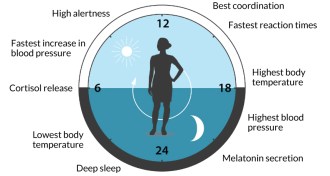 Life
LifeBody clock mechanics wins U.S. trio the Nobel Prize in physiology or medicine
The cellular mechanisms governing circadian rhythms was a Nobel Prize‒winning discover for three Americans.
-
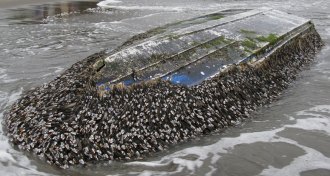 Oceans
OceansCastaway critters rafted to U.S. shores aboard Japan tsunami debris
Researchers report finding 289 living Japanese marine species that washed up on American shores on debris from the 2011 East Japan earthquake and tsunami.
-
 Genetics
GeneticsA mutation may explain the sudden rise in birth defects from Zika
A mutation in a protein that helps Zika exit cells may play a big role in microcephaly.
-
 Climate
ClimateTropical forests have flipped from sponges to sources of carbon dioxide
Analyses of satellite images suggest that degraded forests now release more carbon than they store.
-
 Genetics
GeneticsAncient boy’s DNA pushes back date of earliest humans
Genes from South African fossils suggest humans emerged close to 300,000 years ago.
By Bruce Bower -
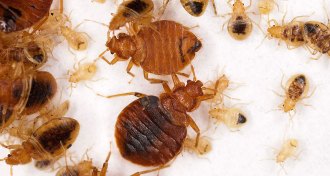 Animals
AnimalsBedbugs may be into dirty laundry
When humans aren’t around, bedbugs go for the next best thing: smelly human laundry.
-
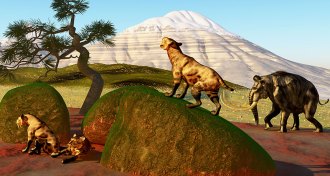 Paleontology
PaleontologySaber-toothed kittens were born armed to pounce
Even as babies, saber-toothed cats had not only oversized canine teeth but also unusually powerful forelimbs.
-
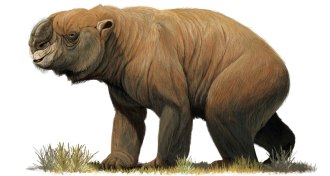 Paleontology
PaleontologyThis giant marsupial was a seasonal migrant
A new analysis suggests that Diprotodon optatum, a giant plant-eating marsupial that went extinct about 40,000 years ago, migrated long distances, much like today’s zebras and wildebeests.
-
 Paleontology
PaleontologyThis giant marsupial was a seasonal migrant
The giant, extinct marsupial Diprotodon optatum migrated seasonally, the first marsupial shown to do so.
-
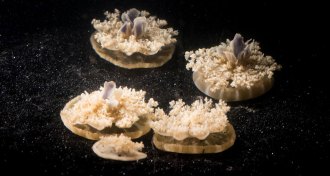 Animals
AnimalsTo test sleep, researchers don’t let sleeping jellyfish lie
Upside-down jellyfish are the first known animals without a brain to enter a sleeplike state.
-
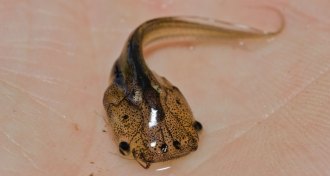 Health & Medicine
Health & MedicineFrom day one, a frog’s developing brain is calling the shots
Frog brains help organize muscle and nerve patterns early in development.
-
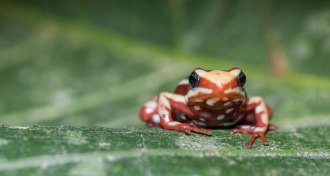 Environment
EnvironmentThe way poison frogs keep from poisoning themselves is complicated
Gaining resistance to one of their own toxins forced some poison dart frogs to make other genetic tweaks, too.